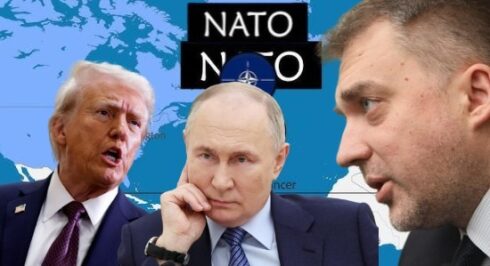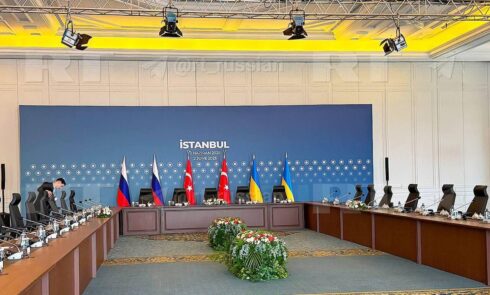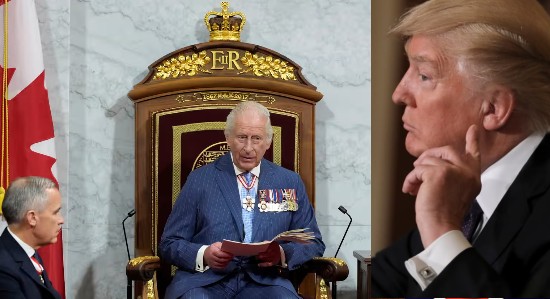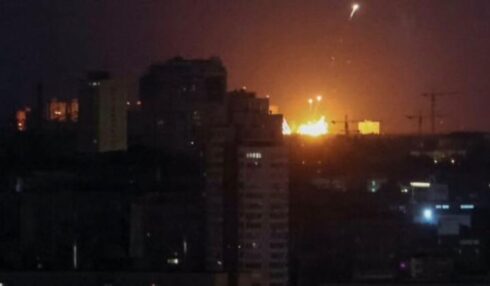Former Ukrainian Defense Minister Andriy Zahorodniuk has voiced his concerns regarding the ongoing negotiations between the U.S. President Donald Trump and Russian President Vladimir Putin, particularly highlighting Ukraine’s exclusion from these discussions. Speaking in a BBC interview, Zahorodniuk warned that direct U.S.-Russia talks without Ukrainian representation could lead to decisions detrimental to Ukraine’s sovereignty.
His remarks come after President Trump announced on February 12, 2025, that high-level negotiations aimed at ending the ongoing war in Ukraine would take place in Munich. The announcement followed a significant U.S.-Russia prisoner exchange, marking a potential shift in diplomatic efforts. While Trump has framed the talks as a crucial step toward peace, Zahorodniuk fears that without Ukraine at the table, the negotiations could favor Russian interests, potentially undermining Ukraine’s territorial integrity.
Former Ukrainian Defense Minister Zahorodniuk described Russia as “extremely manipulative,” warning that any agreements reached without Ukraine’s participation could embolden Moscow. He stressed that while Ukraine supports ending the war, peace at the cost of its sovereignty would be unacceptable. “If Ukraine loses and Russia wins, that’s not going to stop the war,” he stated, arguing that concessions to Russia could set a dangerous precedent.
Former Ukrainian Defense Minister Warns of Concessions Before Talks Even Begin
During the BBC interview, Former Ukrainian Defense Minister Zahorodniuk also expressed concerns that the U.S. may have already given up too much ground before formal negotiations have even started. He pointed to recent comments by the newly appointed U.S. Defense Secretary, who described Ukraine’s NATO membership as “unrealistic” and cast doubt on Ukraine’s chances of regaining all territories lost to Russia since 2014.
“This is extremely concerning,” Former Ukrainian Defense Minister Zahorodniuk remarked. “Ukraine is not going to concede these territories officially because that would embolden Russia to move further.” He cautioned that if the U.S. signals weakness or hesitancy in supporting Ukraine’s territorial claims, Russia could perceive it as a green light to escalate its aggression.
These remarks highlight a growing rift between Ukraine and its Western allies over the long-term resolution of the conflict. While NATO countries have supplied Ukraine with significant military aid, the shifting stance on NATO membership and territorial restoration suggests a potential softening of Western resolve. Analysts warn that such signals could weaken Ukraine’s negotiating position and strengthen Russia’s hand in the talks.
Ukraine’s Security Strategy: Deterrence Over Diplomacy
When asked about alternative security guarantees for Ukraine if NATO membership remains out of reach, Zahorodniuk emphasized the need for a strategy based on “deterrence by denial.” He explained that Ukraine must have—or have access to—sufficient military capabilities to make any future Russian invasion too costly for Moscow to consider.
He pointed out that despite the substantial military support Ukraine has received in the past three years, it still lacks key deterrent capabilities, particularly in air power. “Right now, Ukraine still doesn’t have a single competitive plane against Russia,” he noted. While Western allies have provided extensive ground support, Former Ukrainian Defense Minister Zahorodniuk argued that air superiority remains a critical gap in Ukraine’s defense.
With the U.S. signaling that it does not intend to send troops or establish a long-term military presence in Ukraine, much of the burden now falls on European nations. European leaders, according to Zahorodniuk, understand the need for continued support, but whether they will commit to providing Ukraine with advanced fighter jets and other crucial military assets remains uncertain.
Implications for Europe and the Geopolitical Landscape
The exclusion of Ukraine and other European allies from the Trump-Putin negotiations has sparked widespread concern among geopolitical analysts. Many fear that direct U.S.-Russia talks could push Europe toward a diminished role in security matters, allowing Russia to reassert its influence over former Soviet states.
Some analysts argue that Trump’s approach could align with Putin’s long-term goal of reshaping Europe’s security architecture in Moscow’s favor. Bypassing Ukraine in negotiations might signal to other nations that Washington is willing to compromise on key issues without consulting regional allies.
Former Ukrainian Defense Minister Zahorodniuk’s warnings reflect a broader anxiety among Ukrainian leaders that Western support could weaken under shifting U.S. foreign policy priorities. As the Munich talks approach, Ukraine and its European allies will be watching closely, hoping that any agreement reached will not come at the expense of Ukraine’s sovereignty and long-term security.














